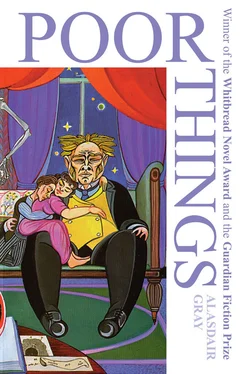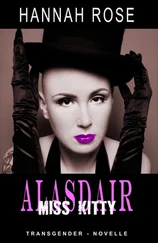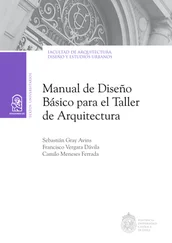So we discussed what people want most, and freedom, the soul, Russian literature, how he hated the Poles because they expected to be treated like gentlemen when they were poorer than he was, and hated the French because they had form without content and sympathized with the Poles, and how he liked the English because of Mr. Astley, and how he had been an outchatel — a tutor to a rich general’s children — and the sad adventures which had made him a gambler. He was so frank and open that I told him a little about my troubles with Wedder. After some thought he said the best I could do with Wedder was take him on a Mediterranean cruise till he was fit to go home. The vessel should not be a passenger ship, but a cargo ship with passenger accommodation.
“There will be few facilities for gambling on a vessel like that,” he said, “and very little social stimulus. If he needs rest as much as you say, a Russian vessel might be better than an English or. . Scottish ship, for the curiosity of the other passengers will lead to less gossip.”
I kissed him good-bye for that advice. I think my kiss cheered him up.
I shall tell the rest fast. Wedder comes back to hotel penniless, Shakespearean, “To be or not to be”, et cetera. I tell him the five hundred he bet me will let us continue our wedding trip next day, and I will return it to him. Next day he pays the hotel, we go to the station, he buys tickets to Switzerland. Since half an hour till train arrives, he installs me with luggage in the ladies’ waiting-room, saying he will smoke a cigar outside. Of course he dodges straight into the betting-shop for a last quick fling which might just recover everything, and loses everything, then charges back to me raving like Hamlet over Ophelia’s coffin. I see that the only way to quieten him down is to act a little too—“pile on the agony”, as they say in the theatre. I go very frozen-faced and moan in a hollow monotonous voice, “No money? I will get us money.”
“How? How?”
“Never ask. Wait here. I will be gone for two hours. We will catch the later train.”
Out I go, find a pleasant little café and enjoy four lovely cups of chocolate and eight Viennese pastries. Then I go back looking tragic just in time for the train. Our carriage is crowded. I ignore his whispered attempts at conversation by sleeping with my eyes open. For the next four days I say nothing but, “Never ask!” even when he begs to know where he is being taken. My doomed expression and hollow voice cause him exquisite pangs of guilt which keep him busy when the poor fellow is not shaking in every limb and wet with hot or cold perspiration, for he has used up the last of his anti-lethargy pills and has a craving for more. That would be fatal! Luckily he is so ill that he can go nowhere unless I lead him by the arm. He is so dependent that I can leave him for hours in a hotel bedroom while I make arrangements. In a Trieste shipping office I book our passage upon exactly the sort of ship the outchatel recommended. I cannot write its name, for the Russian alphabet is Greek to me, but it sounds like cut use off.
On our way to the docks down a broad but dismal street (it is raining) he suddenly halts us in front of a tobacconist’s shop and says on a desperate note I have never heard before, “O Bella, tell me the truth! Are we going a long voyage on a ship?”
“Yes.”
“Please, Bella!” (and he sinks down on his knees in the streaming gutter) “please give me some money to buy cigars! Please! I am completely out.”
I see the time has come to drop the tragic mask.
“You poor sad Wedder,” I say, helping him kindly up, “you shall have all the cigars you want. I can afford them.”
“Bella,” he whispers, bringing his face close to mine, “I know how you got that money. You sold yourself to that filthy little Russian gambler who tried to seduce you on the night of my glorious victory.”
“Never ask.”
“Yes, you did that for me. Why? I am a stinking midden, a reeking dungheap, a quintessence of shit. You are Venus, Magdalene, Minerva and Our Lady of Sorrows rolled into one — how can you bear to touch me?”
However, four minutes later he looked quite cheerful with a cigar clamped between his gnashers.
So now you know how the Russian merchant navy brought us to Odessa. We are spending three days here while the boat takes on a cargo of beetroots, in which the region abounds. Wedder is no longer a jealous man. He does not mind me going ashore by myself, though he begs me to come back to him as soon as possible. Since I have at last brought this letter up to date, perhaps I will, today.
* * * * * * * * * * * * * *
* * * * * * * * * * * *
* * * * * * * * * *
* * * * * * * *
* * * * * *
* * * *
* *
15. Odessa to Alexandria: The Missionaries
I used to think this a very big world, but yesterday something made me doubt it. The morning was fine again. The ship was leaving Odessa at noon. I sat with Wedder in the one place outside our cabin I can persuade him to go, a nook between two ventilators. He was reading a French Bible because all other books in the passengers’ lounge are Russian. Luckily he knows French so that book and he are now inseparable. He reads some parts again and again, then stares a long time at nothing, frowning and whispering “I see.” I was reading Punch or The London Charivari, an English magazine of art and comedy. The pictures showed many kinds of people. The ugliest and most comical are Scots, Irish, foreign, poor, servants, rich folk who have been poor until very recently, small men, old unmarried women and Socialists. The Socialists are ugliest, very dirty and hairy with weak chins, and seem to spend their time grumbling to other people at street corners.
“What are Socialists, Duncan?” I asked.
“Fools who think the world should be improved.”
“Why? Is something wrong with it?”
“The Socialists are wrong with it — and my infernal luck.”
“You told me once that luck is a solemn name for ignorance.”
“Do not torture me, Bell.”
He always says that when he wants me to shut my mouth. I watched the gulls circling in a blue sky full of big slow-moving clouds. I saw the huge harbour full of shipping with bright flags and funnels, masts and sails. I looked at the sunlit quay with its cranes, bales, busy brawny dockers and uniformed officers. I wondered how to improve all this, but it looked all right. Then I studied Punch again and wondered why the well-dressed English people in the pictures were handsomer and less comic than anyone else, unless they were newly rich. Noisy shouts and clattering hooves interrupted these thoughts. Three galloping horses brought a peculiar carriage lurching along the quay and were pulled to a halt at the end of our gangway. Out climbed one of the well-dressed, handsome people I had been puzzling over in Punch. As he came aboard past the Russian seamen and officers I nearly laughed aloud — his thin stiff figure, stiff face, glossy top-hat and neat frock-coat looked so comically English.
Bell Baxter likes meeting new people. Wedder will not eat outside our cabin so last night I tied a clean napkin round my poor man’s neck, settled him with his dinner tray and headed for the dining-saloon. I am now a well-known character on this ship, and passengers who speak English are always placed at my table. This time I had only two. Both had boarded at Odessa. One was a stout, brown-faced American doctor called Doctor Hooker; the other was the obvious Englishman — Mr. Astley! I got very excited. I said, “Do you work for a London firm called Lovel and Co?”
Читать дальше












